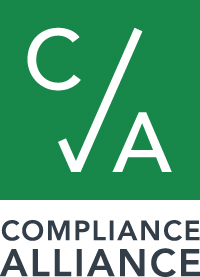|
Question:
We were written up for the initial CD being sent via e-disclosure to a borrower that did not have E-SIGN consent. I am saying that sending via email was not an option for the borrower. Is this correct? I did just look at the file and both borrowers did end up wet signing, but at the time of my review it only showed that it was sent via e-disclosure Answer: Assuming the transaction is not rescindable, the CD can be provided to any consumer primarily liable on the obligation. As far as E-SIGN consent goes, the CD can be provided electronically as long as the bank has obtained E-SIGN consent from the consumer. From what you describe, it appears that E-SIGN consent was not obtained from the borrower prior to providing the CD electronically to the borrower, which would not have satisfied the disclosure provision requirements under TRID. However, the versions provided in person may have met these requirements as long as the bank can show these were actually received at least three business days before closing. If there is more than one consumer, the disclosures may be made to any consumer who is primarily liable on the obligation. If the transaction is rescindable under § 1026.23, however, the disclosures shall be made to each consumer who has the right to rescind. 12 CFR § 1026.17(d): https://www.consumerfinance.gov/policy-compliance/rulemaking/regulations/1026/17/#d In a transaction subject to paragraph (e)(1)(i) of this section, the creditor shall provide the consumer with the disclosures required under § 1026.38 reflecting the actual terms of the transaction. 12 CFR § 1026.19(f)(1)(i): https://www.consumerfinance.gov/policy-compliance/rulemaking/regulations/1026/19/#f-1-i The disclosures required by this section may be provided to the consumer in electronic form, subject to compliance with the consumer consent and other applicable provisions of the Electronic Signatures in Global and National Commerce Act (15 U.S.C. 7001 et seq.). 12 CFR § 1026.38(t)(3)(iii): https://www.consumerfinance.gov/policy-compliance/rulemaking/regulations/1026/38/#t-3-iii Comments are closed.
|
Archives
March 2020
CategoriesCompliance Alliance offers a comprehensive suite of compliance management solutions.
To learn how to put them to work for your bank, call (888) 353-3933 or email info@compliancealliance.com. |


 RSS Feed
RSS Feed
